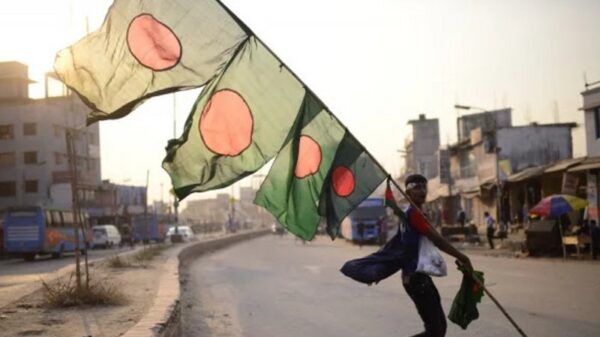Russian executives who never had an influence over Putin may be removed from sanctions list.
Alexander Shulgin, a young, Western-style Russian executive, has been out of work for nearly a year and a half because of EU sanctions. He came under sanctions in April 2022 because of his role as the CEO of the online marketplace Ozon, known as “the Amazon of Russia”. Shulgin stepped down from Ozon immediately after the EU decision and has been appealing the personal sanctions against him ever since.
On 6 September, the European Court of Justice agreed to remove him from the sanctions list. The Court stated that the European Council “[had] not provided any probative evidence” to explain the reasons why Shulgin “should still be considered an influential businessman” after his resignation from Ozon.
The personal sanctions imposed by Europe and the United States against Russian businesspeople have mostly targeted oligarchs, who indeed have ties with Vladimir Putin. As the Financial Times once put it, however, sanctions “appear to be hastily cobbled together from news articles, corporate websites and social media posts”. This approach has caused collateral damage affecting dozens of private businesspeople not tied to the Kremlin.
In addition to Shulgin, they include Vadim Moshkovich, the founder of the agricultural producer Rusagro; Dmitry Konov, the CEO of the polymer producer Sibur; Vladimir Rashevsky, the CEO of the fertilizer maker Eurochem; and many others.
These people are highly qualified managers and professionals (often having western education and progressive set of mind), who were the interface for Western partners and investors when Russian economy turned into “market economy railway”. Following the imposition of personal sanctions, they resigned from their positions as holding such positions resulted in significant restrictions against them and their families. Above that, obviously the employed managers could be forced to leave their positions as their presence in the companies were not welcomed anymore creating increased risks for the companies. They are still unemployed and unable to work in their respective fields of expertise, manage enterprises or engage in international trade.
Restrictions against ordinary top managers, who, unlike oligarchs, have zero political influence, are not helping achieve the political goals that the sanctions were designed for. Observers and critics of the sanctions regime believe that the abrupt “cancellation” of talented managers who were one of the most important connection points between Western and Russian economics harms international trade and long-established business connections and benefits only China, which has increased its exports and imports of goods that Russia previously traded with Europe.
The perception that all Russian business consists of oligarchs dates to the 1990s, a view that has become less relevant in the subsequent decades. The term “oligarchs” originally referred to those who used their government connections to acquire state-controlled assets at a low price during privatisation when President Yeltsin was in office. A later wave of oligarchs included the so-called “individuals close to Putin”, who had allegedly enriched themselves on government contracts or became the heads of state-owned companies. But these individuals account for only a fraction of the Russian business landscape.
During the three decades in which Russia has had a market economy, many successful private companies have emerged in the country: in the consumer sector, industry, Internet technologies and other areas. Many of them have been among the global leaders in their industries and collaborated closely with Western partners. Imposing restrictions on the managers and founders of these non-state companies in the hope that they would persuade Putin to stop the war in Ukraine was probably not a sound approach.
The recent court decisions show that treating oligarchs and white-collar executives the same way when imposing sanctions on Russian businesspeople has had its drawbacks and has sometimes lacked a sound basis. Sanctions against several top managers have been already lifted in other jurisdictions after court appeals. For example, the United States lifted sanctions on former members of the board of directors of the Russian state bank Otkritie, including the investment banker Elena Titova and the IT entrepreneur Anatoly Karachinsky. In turn, the United Kingdom lifted sanctions against Lev Khasis, a former first deputy chairman of the board of Sberbank.
These cases, along with Shulgin’s in the EU, remind us that there are top managers who come and go, and that there is no justification for considering them to be Putin’s cronies and supporters of the war because of their previous roles in large companies.










































